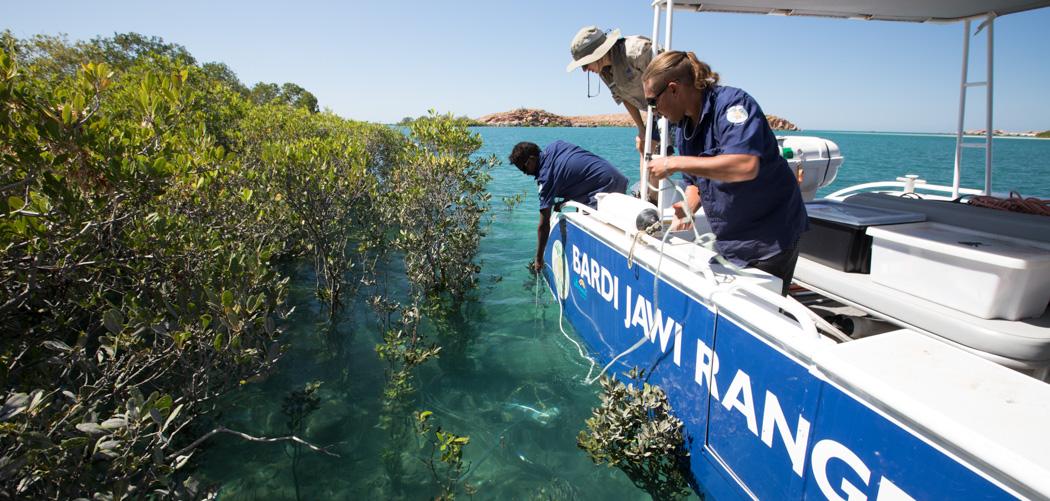“In a new era defined by our collective desire to conserve our marine environment, we are paving the way for two-way knowledge sharing and the establishment of new partnerships between Indigenous communities and scientists.” - AIMS fish ecologist Dr Katherine Cure.
AIMS has begun a series of Indigenous ranger monitoring workshops across tropical Australia, the second of which was completed in Bardi-Jawi country late in 2018.
This short film takes you along part of the Dampier Peninsula near Broome WA, to find out how Indigenous rangers are partnering with Australian Institute of Marine Science researchers to develop resource baselines and setup monitoring programs in designated Indigenous Protected Areas (IPAs).
Rangers are using a combination of participatory mapping, baited underwater remote video (BRUVs), DropCam, and reef walking methods to obtain data that can be used to address their existing management goals and objectives and their community’s concerns over the future of natural and cultural resources.
AIMS researchers are currently working with two ranger groups: the Bardi-Jawi Rangers in Cape Leveque, Western Australia, and the Anindilyakwa Rangers in Groote Eylandt, Northern Territory, both of which have shown leadership in monitoring, collecting scientific information, and engaging partners in a two-way learning process to achieve management objectives for their Sea Country.
Read more about these partnerships in the article 'Monitoring with the People' by Dr Katherine Cure, pubished in the December 2018 issue of the Australian Society for Fish Biology newsletter 'Lateral Lines'. (page 12)

